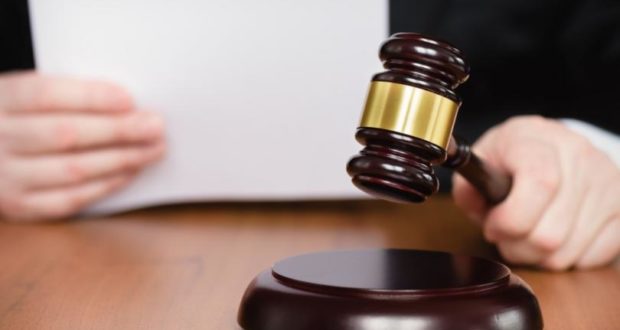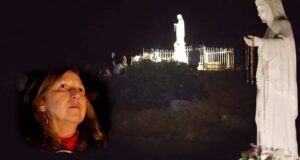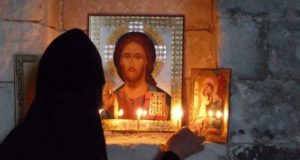اللورد بيتر برايد (Lord Peter Braid): الحكومة لا تقرر أنّ العبادة عبر الإنترنت متطابقة مع العبادة المسيحية ليس لهم الحق البتّ فيها… قد يكون هذا بديلاً عن العبادة ، لكنه ليس العبادة.
قادة روحيين كاتوليك وبروتستانت إتحدوا للمواجهة..
حكمت المحكمة المدنية العليا في اسكتلندا لصالح قضية تطعن في شرعية إغلاق الكنائس في جميع أنحاء البلاد كجزء من إجراءات إغلاق COVID التي فرضتها الحكومة.
في الانتصار القانوني الأول ضد القوانين المتعلقة بـ COVID في اسكتلندا ، حكم اللورد بيتر برايد ، قاضي المحكمة الاسكتلندية الذي نظر القضية ، بأن عمليات الإغلاق كانت غير دستورية بالإضافة إلى التدخل في المادة 9 من الاتفاقية الأوروبية لحقوق الإنسان ، والتي تحدد الحق في إظهار المعتقد الديني.
تم رفع الدعوى القانونية من قبل مجموعة من قادة الجماعات المسيحية في اسكتلندا ، بما في ذلك الأب توماس كانون وايت ، كاهن أبرشية كاثوليكي مقره في غلاسكو. كان وايت يستعد للطعن القانوني الخاص به ضد قيود الحكومة الاسكتلندية على الكنائس قبل أن يتحد مع القادة البروتستانت في الاستئناف.
شهدت جلسة الاستماع التي استغرقت يومين في وقت سابق من هذا الشهر ، التماس المجموعة للمحكمة للحكم ضد الإجراءات التي تم وضعها من خلال لوائح الحماية الصحية (فيروس كورونا) (القيود والمتطلبات) (المستويات المحلية) (اسكتلندا) (رقم 11) اللوائح 2021 (SSI) 2021/3) ، التي تعتبرها غير قانونية ، وبالتالي يصرح أنه يجوز للفرد أن يحضر دور عبادته بشكل قانوني.
كشف بيان صحفي رسمي صادر عن الهيئة القضائية في اسكتلندا أن مجموعة القادة المسيحيين جادلوا بأن حظر العبادة الشخصية كان مناسبة لتدخل الدولة في الأمور الروحية ، والشؤون الخارجة عن اختصاصهم ، مما يشكل انتهاكًا للدستور ولوائح حقوق الإنسان.
جادل وزراء الحكومة الاسكتلندية ضد الاتهامات ، زاعمين أن إغلاق الكنائس مسألة تتعلق بالصحة العامة و “لا تنطوي على مسألة روحية”. وأضافوا أن أي تدخل في العبادة كان محدودًا لأن العبادة عبر الإنترنت شكلت بديلاً مناسبًا عن حضور العبادة العامة.
ومع ذلك ، حكم Braid لصالح الملتمسين ، معلناً أن الحكومة تورطت في الأمور الروحية ، على الرغم من توجيه لوائحها نحو مخاوف الصحة العامة ، وهي نهاية مشروعة. في حين أن حكم Braid جعل القيود غير قانونية ، فإن هذا لا يعني أنه يجب على الكنائس “إعادة فتحها على الفور أو أنه لا توجد قيود مطلوبة” ، ولكن مدى فرض القيود “يرقى إلى انتهاك غير متناسب لحقوق الإنسان الخاصة بمقدمي الالتماس. “
وقال: “كل ما قررته هو أن اللوائح التي تم الطعن فيها في هذا الالتماس ذهبت إلى أبعد مما كانت قادرة قانونًا على القيام به ، في الظروف التي كانت موجودة عند وضعها”.
وأضاف برايد أن تأكيد الحكومة الاسكتلندية بأن العبادة عبر الإنترنت متطابقة مع العبادة المسيحية “ليس لهم الحق البتّ فيها… للإملاء.. قد يكون هذا بديلاً عن العبادة ، لكنه ليس عبادة. وقال القاضي في أحسن الأحوال بالنسبة للمستجيبين ، في اللغة الحديثة ، هو العبادة.
وقال: “في حين أن بعض الناس قد يجنون بعض الفوائد من قدرتهم على مراقبة الخدمات عبر الإنترنت..”
كما اعتبر Braid حقيقة أن المصلين سيعاقبون بعقوبات جنائية إذا حضروا الخدمات وفقًا لمراعاة شعائرهم الدينية. وأشار إلى أنه “إذا أصر الملتمسون على إظهار معتقداتهم ، وفقًا لدينهم ، فسيكونون عرضة لغرامة تصل إلى 10000 جنيه إسترليني ، وهي عقوبة ليست ضئيلة”.
وقال القاضي أيضًا إن الحكومة لم توضح سبب رفضها للسماح لأماكن العبادة بالبقاء مفتوحة للخدمات المجتمعية والروحية، وأن أسباب رفضهم السماح للكنائس بالبقاء مفتوحة للصلاة الخاصة “لم تكن كافية “.
Scotland’s supreme civil court rules nationwide church closures ‘unconstitutional’
The ruling judge, Lord Peter Braid, said that the government’s reasons for banning private prayer in churches were ‘insufficient to withstand even the lowest degree of scrutiny.’
Scotland’s supreme civil court has ruled in favour of a case challenging the legality of church closures throughout the country as part of government-mandated COVID lockdown measures.
In the first legal victory against COVID-related laws in Scotland, Lord Peter Braid, the Scottish Court of Session judge hearing the case, ruled that the closures were unconstitutional as well as interfering with Article 9 of the European Convention on Human Rights, which delineates a right to manifest religious belief.
The legal case was brought forward by a consortium of leaders from Christian groups in Scotland, including Father Thomas Canon White, a Catholic parish priest based in Glasgow. White was preparing his own legal challenge against the Scottish government’s restrictions on churches before joining forces with Protestant leaders in the appeal.
The two-day hearing earlier this month saw the group petition the court to rule against the measures put in place through the Health Protection (Coronavirus) (Restrictions and Requirements) (Local Levels) (Scotland) Amendment (No 11) Regulations 2021 (SSI 2021/3), deeming them unlawful and therefore declare that an individual may lawfully attend his place of worship.
An official press release from Judiciary of Scotland revealed that the group of Christian leaders argued that banning in-person worship was an occasion of the state interfering in spiritual matters, affairs beyond their competence, thus forming a breach of the constitution and human rights regulations.
Scottish government ministers argued against the charges, claiming that church closures were a matter of public health and “did not involve a spiritual matter.” They added that any interference with worship was limited as online worship formed a suitable substitute to attending public worship.
Braid, however, ruled in favor of the petitioners, declaring that the government did entangle itself in spiritual matters, despite directing their regulations towards public health concerns, a legitimate end. Whilst Braid’s ruling did render the restrictions unlawful, this did not mean that churches must “reopen immediately or that no restrictions are required,” but that the extent to which restrictions have been imposed “amount to a disproportionate infringement of the petitioners’ human rights.”
“All I have decided is that the regulations which are challenged in this petition went further than they were lawfully able to do, in the circumstances which existed when they were made,” he said.
Braid added that the Scottish government’s assertion that online worship was identical with Christian worship was “not for them … to dictate.”
“That might be an alternative to worship, but it is not worship. At very best for the respondents, in modern parlance, it is worship-lite,” the judge said.
“While some people may derive some benefit from being able to observe on-line services, it is undeniable that certain aspects of certain faiths simply cannot take place, at all, under the current legislative regime,” he said.
Braid also considered the fact that worshippers would be punished with criminal sanctions if they attended services according to the observance of their religious practice in his ruling.
“Were the petitioners to insist on manifesting their beliefs, in accordance with their religion, they would be liable to be met with a fine of up to £10,000, a not insignificant penalty,” he noted.
“The above factors all point towards the conclusion that the regulations have a disproportionate effect.”
As part of his ruling, Braid criticized the government for failing to demonstrate that “no less intrusive means than the Regulations [nationwide church closures] were available to address their aim of reducing risk to a significant extent.”
The judge also said that the government had not demonstrated why there was an unacceptable degree of risk to allow places of worship to remain open for communal services and that their reasons for refusing to allow churches to remain open for private prayer were “insufficient to withstand even the lowest degree of scrutiny.”
Canon White responded to the ruling with great optimism, saying that he was “overjoyed” at the success of the action.
 Agoraleaks Agoraleaks
Agoraleaks Agoraleaks







